![The World's Most Dangerous Book [Part 3] by Alan Watts](https://images.squarespace-cdn.com/content/v1/5ff86e38dd4cdc650b26083e/1611241838169-4LYB5IQWY64HTV8OXA9X/Bible+5.jpg)
The World's Most Dangerous Book [Part 3] by Alan Watts
[Part 3]
Likewise, the Second Person of the Trinity, God the Son, the Logos-Sopia, refers to the basic pattern or design of the Universe, ever emerging from the inconceivable mystery or the Father as the galaxies shine out of space. This is how the great philosophers of the Church have thought about the imagery of the Bible and as it appears to a modern student of the history and psychology of world religions. Call it intellectual snobbery if you will, but although the books of the Bible might have been "plain words for plain people" in the days of Isaiah and Jesus, an uneducated and uninformed person who reads them today, and takes them as the literal Word of God, will become a blind and confused bigot.
PLEASE SUPPORT MARK WATTS PROJECT
![The World's Most Dangerous Book [Part 2] by Alan Watts](https://images.squarespace-cdn.com/content/v1/5ff86e38dd4cdc650b26083e/1611241878011-QZWPIKMQUTHQ2T1R8T5S/Bible+5.jpg)
The World's Most Dangerous Book [Part 2] by Alan Watts
[Part 2 of 3]
Such monarchs are, of course, frightened of their subjects and constantly on the anxious alert for rebellion. Is this an appropriate image for the inconceivable energy that underlies the universe? True, the altar-throne in Catholic churches is occupied by the image of God in the form of one crucified as a common thief, but he hangs there as our leader in subjection to the Almighty Father, King of the universe, propitiating Him for those who have broken His not always reasonable laws. And what of the curious resemblance between Protestant churches and courts of law? The minister and the judge wear the same black robe and "throw the book" at those assembled in pews and various kinds of boxes, and both ministers and judges have chairs of estate that are still, in effect, thrones.
![The World's Most Dangerous Book [Part 1] by Alan Watts](https://images.squarespace-cdn.com/content/v1/5ff86e38dd4cdc650b26083e/1611240893995-YOY17LZIIQ5X8L7WTC09/Bible+5.jpg)
The World's Most Dangerous Book [Part 1] by Alan Watts
The Catholic hierarchy included subtle theologians and scholars who knew very well that such a difficult and diverse collection of ancient writings, taken as the literal Word of God, would be wildly and dangerously interpreted if put into the hands of ignorant and uneducated peasants. Likewise, when a missionary boasted to George Bernard Shaw of the numerous converts he had made, Shaw asked, " Can these people use rifles?" "Oh, indeed, yes," said the missionary. "Some of them are very good shots." Whereupon Shaw scolded him for putting us all in peril in the day when those converts waged holy war against us for not following the Bible in the literal sense they gave to it. For the Bible says, "What a good thing it is when the Lord putteth into the hands of the righteous invincible might." But today, especially in the United States, there is a taboo against admitting that there are enormous numbers of stupid and ignorant people, in the bookish and literal sense of these words. They may be highly intelligent in the arts of farming, manufacture, engineering and finance, and even in physics, chemistry or medicine. But this intelligence does not automatically flow over to the fields of history, archaeology, linguistics, theology, philosophy and mythology which are what one needs to know in order to make any sense out such archaic literature as the books of the Bible.
PLEASE SUPPORT THE ALAN WATTS PROJECT
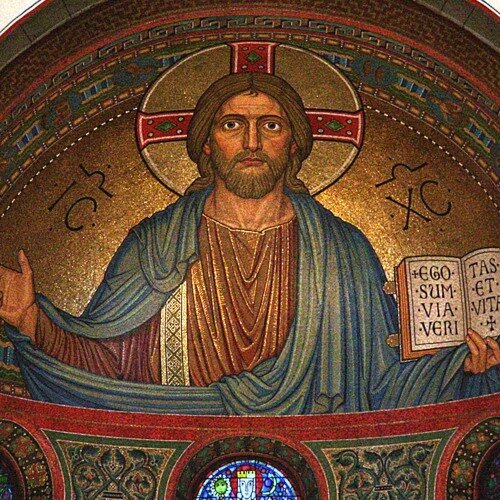
“What, in God’s Name, is Christ Consciousness?” (Part 2) by Seán ÓLaoire
Jesus told many parables whose purpose, I believe, was to help the listeners differentiate between the ego and the soul. For example, he tells of a rich man who, before he went away on a long trip, set a manager in charge of his property and workers. The rich man delayed in coming back, so the manager figured he had gotten lost or had died. So, he began to regard the property and the workers as his own – and started to get drunk and abuse them. How to interpret this? I don’t think that the rich man was God and that the manager represented the typical sinful human, whom God would punish. Rather, I believe, that the rich man represents the soul and the manager represents the ego. Very often, we mistake our egos for our souls and neglect our incarnational missions.
SUPPORT SEAN O’LAOIRE’S GOOD WORK AND PATHEOS.COM

PODCAST: Learning How to See with Brian McLaren — Episode: “Find the Flow” (feat. Jacque Lewis)
What would it mean for us if we happened to live during the decline of the old humanity when a new humanity is in the painful, fragile process of being born? What if some of us are in the process of trying to resuscitate the old, while others of us are conceiving, gestating and giving birth to the new? What if the growth of the new movement, the new humanity, the new social creation or construction depends on the old one losing its hegemony? As I write those words, I can’t help but feel a flood of resonances with the Hebrew scriptures. I feel echoes of Isaiah speaking of God doing a new thing. Something fresh springing forth so that there will be good news for the poor, recovery of sight for the blind, freedom for the incarcerated and oppressed. Oppression of the poor is one of the hallmarks of the old humanity.
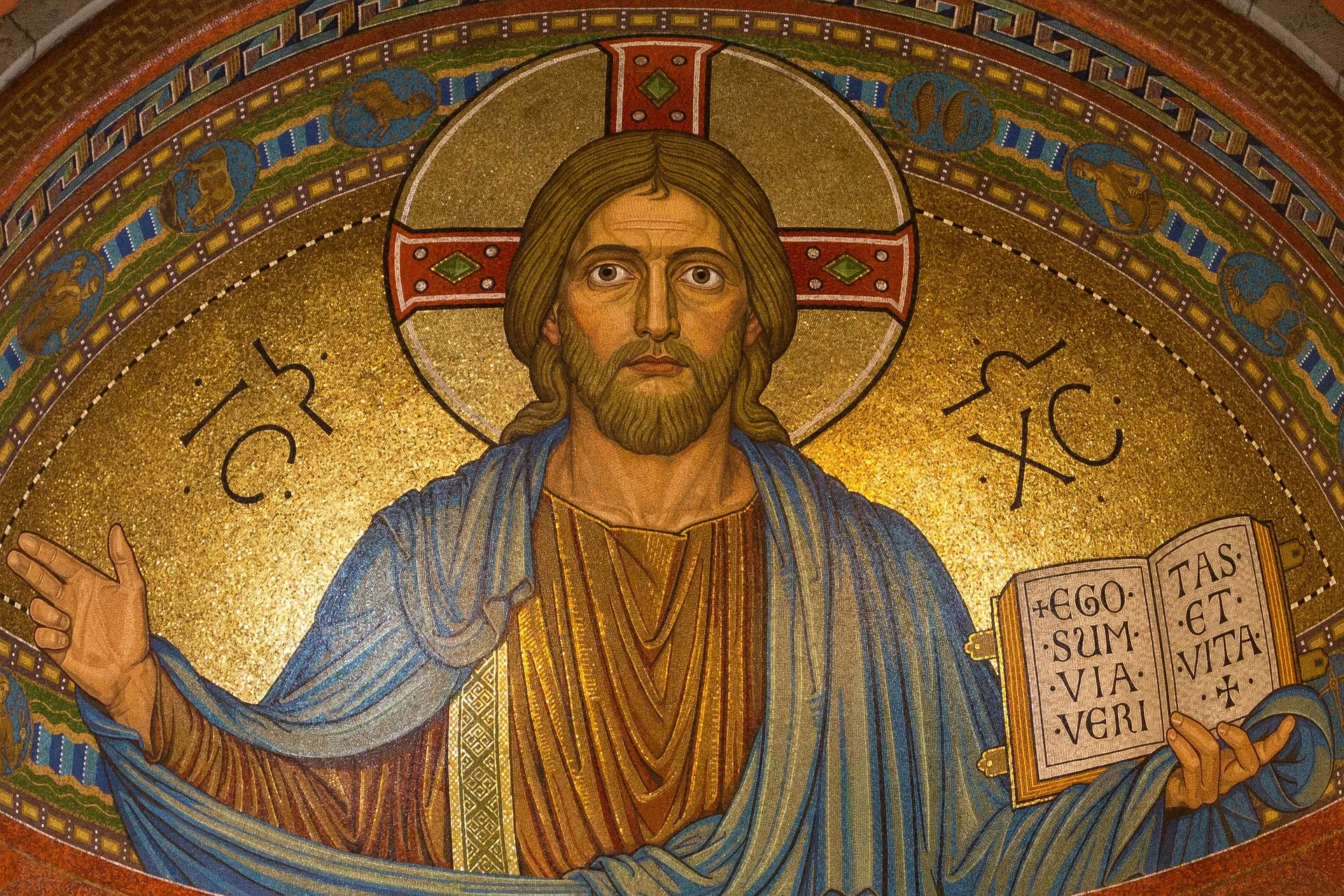
Transfiguration – Then and Now by Fr. Sean O'Laoire
A. The Real Meaning of Thabor
The purpose of the gospels in writing of the transfiguration was to show that Jesus was the fulfillment of the Jewish Scriptures. Traditionally, these scriptures were divided into three sections – the acronym ‘TaNaKh’ was used to represent them. “T” stood for Torah, the first five books of the bible, ascribed to Moses and known as “The Law.” “N” stood for Nebiim or “the prophetic books.” And “K” stood for Ketuviim or “writings” (the wisdom literature – psalms, Job, Ruth etc.) The Pharisees accepted all three parts as inspired, but the priestly caste, the Sadducees, only accepted Torah and Nebiim. Moses was the archetype of Torah; and Elijah stood for the prophets. So, the evangelists wanted to show that Jesus’ encounter with Moses and Elijah was the fulfillment of both streams of revelation. Moreover, God had traditionally appeared on mountain tops – Sinai in the case of Moses and Horeb in the case of Elijah (some scholars claim Sinai and Horeb were the same mountain), so the evangelists situate this event on Mount Thabor. In the transfiguration scene also, God appears and singles out Jesus as “my beloved son in whom I am well pleased.” So, whatever else is true, this was a literary device to make a strong case for the new covenant – the Jesus movement.

“The Evolution of Atonement Theories in Western Christian Theology: Where they Have Been and Where They are Going” by Madeleine Rebouché
ABSTRACT
There are three main ways of viewing the atonement that have dominated Western Christian Theology in the past: the classic view, the Latin view, and the subjective view. Each of these views were important in their time and place within history, but it is time that we begin to search for a new way of viewing the atonement in order for the gospel to remain a viable narrative for Christians to connect to in contemporary thought. I argue that the God must be nonviolent and that divine justice should follow a restorative versus a retributive model of justice. It is through these new understandings of God’s character, agency, and justice that the atonement must be understood.
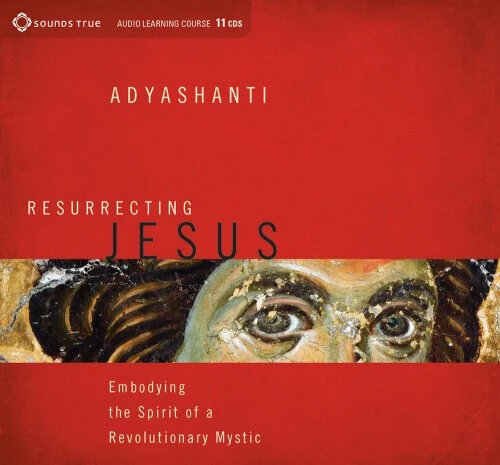
“If Jesus Were Alive Today” by Adyashanti — from 'Resurrecting Jesus: Embodying the Spirit of a Revolutionary Mystic' (EXCERPT)
I often wonder what would it be like if Jesus were alive today. Imagine Jesus—who wasn’t a Christian, after all, but a Jew—entering a church today, going up to the pulpit and giving a sermon. Can you imagine how challenging that would be for the congregation? Can you imagine how uniquely different that sermon would be from what many of us received in church?
BE A SUPPORTER OF ADYA’S WORK

What, in God’s Name, is Christ Consciousness? (Part 1) by Seán ÓLaoire
Quite frequently, in homilies, lectures and writings, I use the phrase, “Christ Consciousness.” Some weeks ago, a parishioner asked if I might deliver a full ‘sermon’ on the topic. So, I did; and this blog, in two parts, is the result.
I don’t believe for a moment that Jesus of Nazareth was the only ‘avatar’ to exemplify and teach on this topic. Very similar ideas can be found in the terms, “Buddha nature” (in Buddhism) and “Self-realization” (in Hinduism). And I would claim that even the Christian term “Salvation”, properly understood, is really the same idea. Of course, all of these articulations of the great mystical traditions have been misinterpreted and even abused as control mechanisms. More about that anon.
BE A SUPPORTER OF FR. SEAN O`LAOIRE’S WORK

“What Is ‘The False Self’”? (excerpt) THE IMMORTAL DIAMOND by Fr. Richard Rohr
I begin this chapter with a positive quote, so I can describe the False Self properly and avoid the usual connotations of false. Your False Self is not your bad self, your clever or inherently deceitful self, the self that God does not like or you should not like. Actually your False Self is quite good and necessary as far as it goes. It just does not go far enough, and it often poses and thus substitutes for the real thing.
BE A SUPPORTER OF FR. ROHR AND C.A.C

The Essence of Our Being by Karin Baard
What is it we have forgotten about ourselves and one another? In the Celtic tradition, the Garden of Eden is not a place in space and time from which we are separated. It is the deepest dimension of our being from which we live in a type of exile. It is our place of origin or genesis in God. Eden is home, but we live far removed from it. And yet in the Genesis account, the Garden is not destroyed. Rather Adam and Eve become fugitives from the place of their deepest identity. It is a picture of humanity living in exile.
BE A SUPPORTER OF MS. BAARD’S WORK

"The Religious Dilemma: Fundamentalism or Mysticism (the Road Less Traveled)?" by Father Seán ÓLaoire
I’ve never found a satisfactory definition of religion, though I’m certain of its origin, which I take to be the Impulse of Spirit. However, humans have a penchant for screwing up all great ideas. The least deadly screw up, perhaps, is to allow the impulse to stagnate theologically; and the deadliest is to weaponize it.
BE A SUPPORTER OF FR. SEAN’S WORK

“The Suppression of Yin, Patriarchy and the Person of Jesus” by Keith Basar
Throughout history, overemphasized attributes of Yang, at the expense of the balancing properties of Yin, have produced a highly toxic setting for a vast majority of humans. Patriarchy is a powerful example of such. A subdued Yin produces an overly aggressive, exploitative, domineering male-centic world.

“Original Sin and Karma” by Seán ÓLaoire
Introduction: In the play, Hamlet, an officer in the Palace Guard famously opined, “Something is rotten in the State of Denmark.” If he had been more aware of the human condition in general, he might have said, “Something is rotten in the state of the world.” And, indeed, it is. This issue of human vicissitude is probably the most oft-treated theme in world literature. The writers of all scriptures get into it; so do the philosophers, metaphysicians, psychologists, playwrights, novelists – and Calvin and Hobbes. And I’ve had a shot at it myself. I’ve looked at it through the twin lenses of karma and original sin, in these four brief essays.

“An Argument for Christian Universalism: Why I Don't Believe in an Eternal Hell” by Justin Aptaker
I grew up in an evangelical Christian environment. Over the years, I developed a deep-seated terror of the idea of an eternal hell. Because of this, I eventually suffered a devastating mental breakdown centered around thoughts of my own damnation, and this finally drove me to find new beliefs I had never even anticipated. Today…
SUPPORT THE WORK OF JUSTIN APTAKER
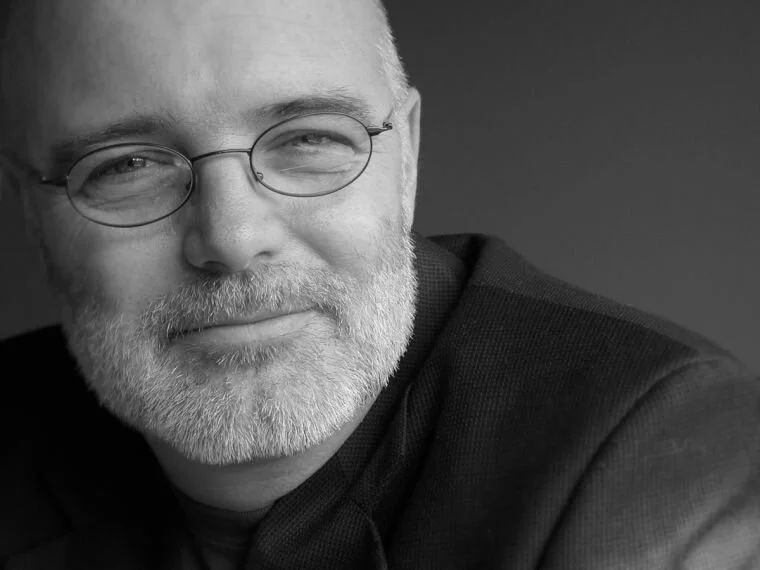
“Brian McLaren says there’s a good reason your beliefs stopped working” by Jana Riess
Please walk us through the four stages of faith and doubt as you outline them in the book, starting with Stage 1.
I think we are all inducted into Stage 1, or Simplicity, in our childhood. This is the stage of simple dualisms: us/them, in/out, right/wrong, strange/familiar, safe/dangerous. Because we’re children and there’s a lot we don’t know, we need authority figures to tell us what’s safe. This is a natural and healthy stage for us as children.
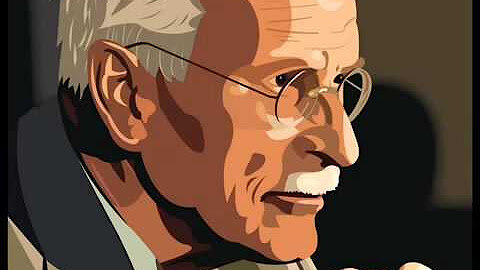
“Tribute to Carl Jung” by Alan Watts — and Jung’s Lecture (excerpt) ‘The Shadow Self to Religious Life’
I’m sitting late at night in a lonely cottage in the country surrounded by many favorite books which I’ve collected over a number of years. And as I look up at the shelves, I see that there’s a very large space. Occupied by the volumes of one man. Carl Gustav Jung, who left this world not more than a few weeks ago. And I’d like to talk tonight about some of the great things that I feel that Jung has done for me. And also the things which I feel to be his enduring contributions toward the science of psychology of which he was such a great master. I began to read Jung when I first began to study Eastern philosophy in my late adolescence. And I’m eternally grateful to him for what I would call a sort of balancing influence on the development of my thought. As an adolescent, in rebellion against the sterile Christianity, in which I was brought up, I was liable to go absolutely overboard for exotic and foreign ideas. Until I read the extraordinarily wise commentary that he wrote to Richard Wilhelm’s translation of the Chinese Taoist text called the “Secret of the Golden Flower.” And it was Jung who helped me to remind myself that I was by, upbringing in by tradition, always a Westerner and I couldn’t escape from my own cultural conditioning.

“Jesus: His Religion” – (Pt. 2) by Alan Watts
So, let’s suppose then that Jesus had such an experience. But, you see, Jesus has a limitation, that he doesn’t know of any religion other than those of the immediate Near East. He might know something about Egyptian religion, and perhaps a little bit about Greek religion, but mostly about Hebrew. There is no evidence whatsoever that he knew anything about India or China. And people who think that Jesus was God assume that he must have known because he would have been omniscient. No, Saint Paul makes it perfectly clear in the Epistle to the Philippians that Jesus renounced his divine powers so as to be Man.
BE A SUPPORTER OF THE ALAN WATTS ORGANIZATION
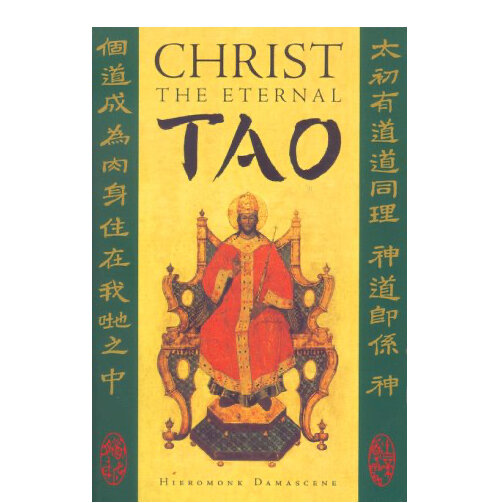
“Christ The Eternal Tao” - (excerpt) by Hieromonk Damascene
In modern Western society, many people turn away from the Christianity of their formative years because they find its truths smothered under an unreal kind of religiosity. They see that the people in the churches are not changing and becoming better, but rather are comforting themselves and each other la their unregenerate state. They find that the Spirit of the Western churches is, at its Core, little different from that of the world around them. Having removed from Christianity the Cross of inward purification, these churches have replaced a direct, intuitive apprehension of Reality and a true experience of God with intellectualism on the one hand and emotionalism on the other.
PURCHASE: “Christ The Eternal Tao”

“An Integral Catholic Leader: Father Anthony de Mello, SJ” by Giorgio Piacenza Cabrer
Father Anthony de Mello SJ is considered one of the foremost mystical theologians of the late Twentieth Century. His simple and direct approach to life continues to untie all kinds of blockages preventing man’s acceptance of his spiritual nature, even decades after his unexpected death. De Mello’s radiated authenticity, love for all and his characteristic laughter tended to disarm any negative preconceived notions against his ideas. As far as my research goes, I’d say that most of those that knew him personally can attest to his sincere and friendly attitude to all as people from every religious persuasion felt comfortable and at soulfully at home near him.
READ MORE OF MR. PIACENZA’S ESSAYS

